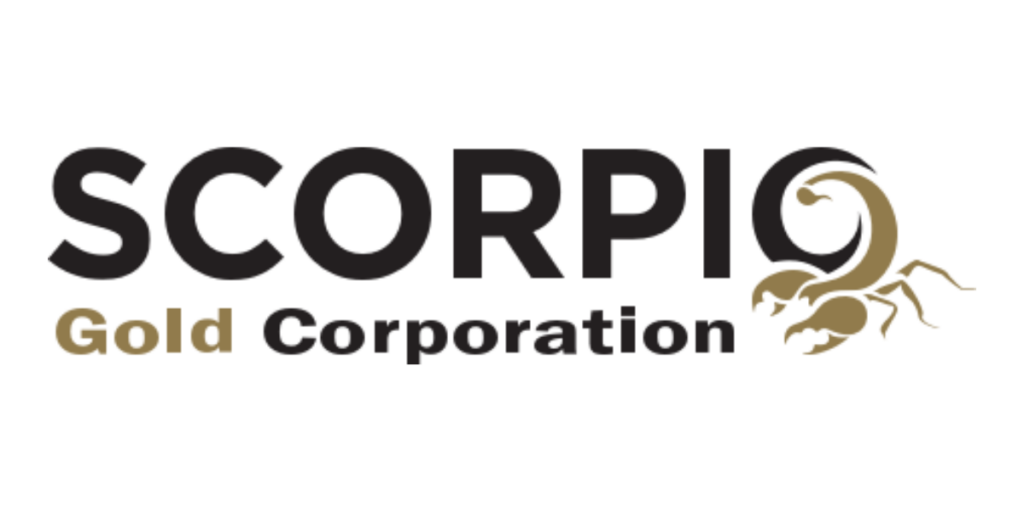Vancouver, BC – Anacortes Mining Corp. (“Anacortes” or the “Company”) (TSXV: XYZ, OTCBQB:XYZFF) is pleased to announce the results of a Preliminary Economic Assessment (PEA) on its Tres Cruces gold oxide project, located in Northern Peru, in the heart of Peru’s premier gold mining district.
Anacortes will be hosting a conference call to discuss the results of the PEA, today Tuesday, March 8, 2022 at 4:30 PM EST (1:30 PM PST).
Pre-registration link:
https://zoom.us/webinar/register/5916463304496/WN_V4EKNuWoSA2_Uxm-fiPq_Q
PEA Highlights – Tres Cruces Oxide Project
- Pre-Tax Net Present Value at a 5% discount rate (“NPV 5%”) of US$294.3 million
- After-Tax NPV 5% of US$165.9 million
- After-Tax Internal Rate of Return (“IRR”) of 33.0%; 2.1 year payback at US$1,700/oz
- Average gold production of 68,000 ounces annually over an initial oxide mine life of 7 years. Peak gold production of 81,000 ounces in Year 2.
- Initial CAPEX of US$125.2 million
- Average Daily Throughput: 5,800 tpd over initial mine life.
- 588,000 ounces of gold mined over the initial mine life of 7 years.
- Recovered gold is estimated at 481,000 ounces over the initial mine life.
Jim Currie, CEO of Anacortes Mining, states, “The Tres Cruces Oxide Project PEA shows excellent economics for the proposed heap leach operation, located in one of the world’s most prolific gold mining belts. We intend to aggressively advance the development of the oxide resource to deliver shareholder value in a timely and environmentally and socially responsible manner, and we continue to emphasize that Tres Cruces has exceptional exploration potential at depth. The existing 1.8M ounce sulphide gold resource below the oxide cap will be further evaluated with our upcoming drill program. This program will deepen holes that ended in wide zones of higher-grade mineralization to test the extent of the deposit and include infill drilling to increase the confidence in the resource as we move Tres Cruces forward. This mineralization includes 173.0 m averaging 3.118 g/t Au from 92.0 m to 265.0 m in hole RTC-255, which ended in mineralization.”
This PEA was prepared in accordance with National Instrument 43-101 (“NI 43-101”) and evaluates the economics of mining the Tres Cruces Oxide Gold Deposit through conventional open pit mining and heap leach processing for gold recovery to doré. The study was prepared by M3 Engineering and Technology of Tucson, Arizona and Lima, Peru, in cooperation with Nilsson Mine Services of Pitt Meadows, BC, Transmin Ltd., of Lima, Peru, Advantage Geoservices Ltd. of Osoyoos, BC, and Jeffrey Rowe of Surrey, BC.
| PEA ASSUMPTIONS AND RESULTS | ||
| Description | Units | |
| Net Present Value (NPV 5%) Pre-Tax | US$ (million) | $294.3 |
| Net Present Value (NPV 5%) After-Tax | US$ (million) | $165.9 |
| After-Tax Internal Rate of Return (IRR) | % | 33.0 |
| Payback Period | Years | 2.1 |
| LOM Cumulative Cash Flow | US$ (million) | $235.6 |
| LOM All-In Sustaining Costs (AISC) | US$/oz | $786 |
| Pre-Production CAPEX | US$ (million) | $125.2 |
| Sustaining CAPEX (LOM) | US$ (million) | $5.2 |
| Mine Life | Years | 7 |
| Average Processing Rate | Tonnes/day | 5,800 |
| LOM Strip Ratio | 2.89:1 | |
| Average Gold Recovery | % | 81.7 |
| Average Annual Gold Production | Oz/year | 68,000 |
| Total LOM Gold Production | Ounces | 481,000 |
Mineral Resource Estimate
The current resource prepared by Jeffrey Rowe and James Gray (Advantage Geoservices), published in March 2021, was an update of the Technical Report by Lacroix and Associates (L&A) dated September 2012 for previous owner New Oroperu Resources (which is now a wholly-owned subsidiary of the Company). The estimate used the geologic models of lithology and alteration that were developed for the L&A resource, but divided the deposit by mineralization type (oxide, transition, or sulphide). Gold grade correlation based on geology was not readily apparent and the decision was made to use a 0.2 g/t grade shell as control for grade estimation. This shell was generated using an indicator estimation method. A total of 327 holes have been used for this estimate, of which 159 were RC holes and 168 were core holes. Sample grades were composited to a down-hole length of 3 m. Assays, subdivided by grade domain, were capped in a conventional manner prior to compositing.
Gold grades were estimated inside and outside the mineralized grade shell by ordinary kriging, into blocks with dimensions of 10m x 10m x 5m (X/Y/Z). Average density values were assigned by lithology based on 2,700 core density measurements.
The resource has been classified based on spatial parameters related to drill density and configuration, and the generation of an optimised pit. Blocks were initially classified as Inferred where the average distance to the closest three holes is within 80 m, and as Indicated where the average distance to the closest three holes is within 50 m. Pit optimization included variable cost and recovery values dependent on mineralization type. All material included in the Mineral Resource Estimate is contained within the optimized shell.
| Mineral Resources Estimates[1] | ||||||
|
Resource Classification |
Indicated | Inferred | ||||
| Tonnes
(1000’s) |
Au
(g/t) |
Oz Au
(1000’s) |
Tonnes
(1000’s) |
Au
(g/t) |
Oz Au
(1000’s) |
|
| Oxide (0.3 g/t cut-off) | 9,636 | 1.37 | 425 | 487 | 0.75 | 12 |
| Transition
(0.3 g/t cut-off) |
5,707 | 1.12 | 205 | 361 | 0.60 | 7
|
| Sulphide
(0.9 g/t cut-off) |
31,132 | 1.84 | 1,844 | 1,713 | 1.55 | 85 |
| Total | 46,475 | 1.65 | 2,474 | 2,561 | 1.26 | 104 |
The PEA only considers mining and processing of leachable oxides and transition materials from the Indicated and Inferred resource categories. Sulfide mineralization is considered a future opportunity and does not currently factor into mine planning, processing or financial results as reported in this PEA.
Mining and Processing
The Tres Cruces Oxide project presented in the PEA will employ conventional open pit mining with heap leach processing on a 365 day per year, 24 hour per day operating basis. The process will consist of a crushing circuit, a heap leach pad, a recovery plant, and water management ponds. Mined rock from the pit will be transported to the crusher by haul truck. A 6,000 tpd, three-stage crushing plant will reduce run-of-mine (ROM) to minus 16 mm. Crusher product will be transported to the heap leach pad via a conveyor belt and stacker system.
The heap leach pad will be lined with a geomembrane and will include a solution recovery system to contain and capture the process solution. The crushed phase will be conveyed and stacked in lifts on the leach pad by a mobile radial stacker. The stacker will be fed by a series of mobile grasshopper conveyors placed across the heap that will be fed from the main overland conveyor from the crushing circuit. Sections of the conveyor transporting crush to the heap will be permanent, and some sections located on the overliner will be semi-permanent and mobile to allow them to be moved as needed, allowing for phased construction of the pad and overliner placement over the life of the mine.
The lifts will be stacked to a target of 8 m with a total heap height of 85 m. Stacking will advance continuously, whereby areas will be placed under leach intermittently through the irrigation of dilute cyanide solution delivered from the Adsorption Desorption Recovery (ADR) plant by an infrastructure of distribution piping. The cyanide solution leaches gold from the stacked heap and the rate of recovery and ultimate recovery is enhanced by increasing the surface exposure of mineralisation by crushing and by the stacking of multiple lifts on top of each other.
Above the geomembrane within the coarse-crushed overliner, perforated collection piping transports the pregnant leach solution (PLS) to the ADR for gold recovery by carbon adsorption. The gold recovery strategy incorporates a vertical multi-stage carbon column, intermittent scheduled carbon transfer to the elution circuit for stripping under high temperature and pressure, and the electrowinning of the high-tenor strip solution to sludge on cathode. Electrowinning sludge will be dried in a retort where mercury can be condensed and recovered. Subsequently, the sludge is fluxed and smelted to produce precious metal doré bars for sale to an offsite refinery. Note that while silver is a by-product of gold production, there is no silver resource presented in this PEA since the geological and metallurgical databases lack the detail to evaluate the potential contribution.
PLS will flow by gravity to the ADR plant but can be bypassed to the pregnant solution pond in the event of a precipitation event. Excess process solutions due to storm events can be stored in the Overflow Pond. Make-up cyanide, pH level and water from the barren solution pond can be added to the ADR barren solution tank, before recirculating the solution back to the heap by pumping. Use of raincoats on the heap, back up power-supply for pumps, and containment surge volume within the process water ponds are some of the means to address excess process solution due to storm events.
Based on preliminary column testing at a crush size of 16 mm, a gold recovery of 81.7% is being used in this PEA. The Company intends to conduct an extensive metallurgical program during 2022 to confirm this recovery with metallurgical samples collected during the upcoming drilling program.
Capital and Operating Costs
| LOM Operating Costs | |
| Area | LOM Cost (US$1000’s) |
| Mine Operating Cost | $140,043 |
| Process Plant Operating Cost | $61,468 |
| Water Treatment Plant | $2,942 |
| Site and Services | $8,332 |
| G & A | $35,177 |
| Treatment & Refining | $1,586 |
| Royalties | $12,193 |
| Closure | $25,030 |
| Total | $286,772 |
| $/t Processed | $19.23 |
| Initial Capital Costs | |
| Item | Cost (US$1000’s) |
| Direct Cost | $56,381 |
| Indirects | $14,327 |
| Total Directs and Indirects | $70,708 |
| Contingency (@25%) | $17,677 |
| Mining Pre-strip | $21,610 |
| Mining Contingency (@7.5%) | $1,621 |
| Owner’s Cost & First Fills | $13,539 |
| Total Initial Capex | $125,154 |
Further details on operating and capital costs can be found in Chapter 21 of the PEA.
Sensitivity
For the purposes of this news release, only gold price sensitivity is presented. Sensitivity to capital costs, operating costs and recovery can be found in Chapter 22 of the PEA.
| Gold Price Sensitivity | |||||
| Metal Price | Gold Price | Revenue (US$000) | NPV, after tax @ 0% (US$000) | NPV, after tax @ 5% (US$000) | IRR, after Tax |
| Base Case | $1,700 | $812,856 | $235,628 | $165,949 | 33.0% |
| 20% | $2,040 | $975,428 | $329,748 | $240,652 | 42.6% |
| 10% | $1,870 | $894,142 | $282,856 | $203,430 | 38.0% |
| -10% | $1,530 | $731,571 | $188,013 | $128,158 | 27.6% |
| -20% | $1,360 | $650,285 | $139,742 | $89,856 | 21.8% |
Disclosure
The PEA results are summarized for purposes of this press release. The Company intends to file the complete PEA on SEDAR and the Company’s website by March 14, 2022.
The PEA is preliminary in nature and includes inferred mineral resources that are considered too speculative geologically to have the economic considerations applied to them that would enable them to be categorized as mineral reserves. There is no guarantee that the inferred mineral resources can be categorized as Indicated or Measured mineral resources or mineral reserves, and as such there is no guarantee that the project and the economics of that project as described in this report can be achieved.
Qualified Person
The technical content of this news release has been reviewed and validated by James (“Jim”) Currie, P. Eng., a qualified person as that term is defined in National Instrument 43-101. Mr. Currie is the President and CEO of Anacortes Mining Corp.
For more information visit: www.anacortesmining.com
Twitter: @anacortesmining
LinkedIn: Anacortes Mining
On Behalf of the Board:
James A. (Jim) Currie
President & CEO
Investor Relations Contact:
Kin Communications Inc.
604-684-6730
XYZ@kincommunications.com
About Anacortes
Anacortes is a new growth-oriented gold company in the Americas, which owns a 100-per-cent interest in the Tres Cruces gold project located in Peru. Tres Cruces is one of the highest-grade oxide deposits globally and hosts oxide plus sulphide indicated resources of 2,474,000 oz at 1.65 g/t gold, inclusive of 630,000 oz of high-grade leachable gold at 1.28 g/t gold and inferred resources of 104,000 oz at 1.26 g/t gold. Anacortes is well capitalized and intends to aggressively advance Tres Cruces through feasibility and to production under a heap leach open-pit scenario. Additionally, Anacortes will continue to seek further growth opportunities in the Americas, with the goal of creating the next mid-tier multi asset gold producer.
Cautionary Statement on Forward-Looking Information
This news release contains forward-looking statements which constitute “forward-looking information” within the meaning of applicable Canadian securities legislation (“Forward-looking Statements”). All statements included herein, other than statements of historical fact, are Forward-looking Statements and are subject to a variety of known and unknown risks and uncertainties which could cause actual events or results to differ materially from those reflected in the Forward-looking Statements.
The Forward-looking Statements in this news release may include, without limitation, statements about the Company’s belief that Tres Cruces has exceptional exploration potential at depth, its intent to aggressively advance the development of the oxide resource, its expectation that its proposed drill program can test the extent of the deposit and increase confidence in the resource, the design of the project as contemplated in the PEA and this press release, the Company’s plans to conduct an extensive metallurgical program during 2022 and its expectation that such a program would confirm recovery and, finally, the Company’s intent to aggressively advance Tres Cruces through feasibility and to production under a heap leach open-pit scenario. Often, but not always, these Forward-looking Statements can be identified by the use of words such as “anticipated”, “estimated”, “potential”, “open”, “future”, “assumed”, “projected”, “used”, “detailed”, “has been”, “gain”, “planned”, “reflecting”, “will”, “anticipated”, “estimated” “containing”, “remaining”, “to be”, or statements that events, “could” or “should” occur or be achieved and similar expressions, including negative variations.
Forward-looking Statements involve known and unknown risks, uncertainties and other factors, many of which are beyond the ability of the Company to control or predict and which may cause actual results, performance or achievements to be materially different from any results, performance or achievements expressed or implied by the Forward-looking Statements. These risks include changes in general economic conditions and financial markets; political risks; risks relating to the current and potential adverse impacts of the COVID-19 pandemic on the economy, financial markets and the Company’s operations; and risks inherent in mineral exploration and development. Although Forward-looking Statements contained in this news release are based upon what each of the parties believe are reasonable assumptions at the time they were made, such statements are made as of the date hereof and the Company disclaims any obligation to update any Forward-looking Statements, whether as a result of new information, future events or results or otherwise, except as required by law. There can be no assurance that these Forward-looking Statements will prove to be accurate, as actual results and future events could differ materially from those anticipated in such statements. Accordingly, the reader should not place undue reliance on Forward-looking Statements.
The TSXV has in no way approved or disapproved of the contents of this press release.
[1] Mineral Resources are not Mineral Reserves and do not have demonstrated economic viability.





